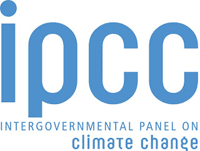Over the last several weeks, there have been numerous reports of tensions within the UN Intergovernmental Panel on Climate Change (IPCC) relative to its new report on the state of global warming, part of which scheduled for release Sept. 27. The rest will be made public in early 2014.
Those tensions were said to be the result of clear evidence in the last 15 years or so that global temperatures have stayed flat, confounding predictions by many that we would see steady increases in the world thermometer. To what extent this more recent phase would be acknowledged, and if the IPCC would scale back its views on "climate sensitivity" to carbon, have been reported as subject to fierce debate within the IPCC and other groups providing input to the report.
This week, leaked copies of the report found their way into press hands, and the results are interesting, though the IPCC itself says it is a mistake to draw conclusions from drafts.
The major news is that it appears the new report tones down its predictions for temperature increases in coming decades, the first time that has happened since the inaugural report in 1990. The most recent report, released in 2007, upped its forecast for rising temperatures versus the one before that.
The retreat on temperature predictions is small but significant.
It is a little hard to follow, but sources say the draft report, as in 2007, offers range of predictions relative to the doubling of carbon in the atmosphere, which takes many decades if not a century to occur. That impact is called "Equilibrium Climate Sensitivity" or ECS, and below are how the two reports estimate the ECS impact.
2013 Report |
2007 Report |
Probability |
Temperature Range |
Probability |
Temperature Range |
Extremely likely |
> 1 degree C
|
Very likely |
> 1.5 degrees C |
Likely |
> 1.5 degrees C |
Likely |
> 2 degrees C |
Very likely
|
< 6 degrees C |
|
No upper limit |
The 2007 report also offered a "most likely" number of a 3-degrees Celsius impact, while the 2013 report is said to not offer this prediction.
In practice, the report says that if carbon levels double in about 70 years, temperatures are "likely" to rise 1 to 2.5 degrees Celsius and "extremely unlikely" to be greater than 3 degrees. This again is lower than predicted in the 2007 report, when it the impact was said to be "very likely" to be 1 to 3 degrees Celsius.
According to Matt Ridley in the Wall Street Journal this week, "Most experts believe that warming of less than 2 degrees Celsius from pre-industrial levels will result in no net economic and ecological damage. Therefore, the new report is effectively saying (based on the middle of the range of the IPCC's emissions scenarios) that there is a better than 50-50 chance that by 2083, the benefits of climate change will still outweigh the harm."
 Why? Because such modest warming would extend the range of farming further north, improve crop yields, slightly increase rainfall (especially in arid areas), enhance forest growth and cut winter deaths (which far exceed summer deaths in most places). Increased carbon dioxide levels also have caused and will continue to cause an increase in the growth rates of crops and the greening of the Earth, because plants grow faster and need less water when carbon dioxide concentrations are higher. Why? Because such modest warming would extend the range of farming further north, improve crop yields, slightly increase rainfall (especially in arid areas), enhance forest growth and cut winter deaths (which far exceed summer deaths in most places). Increased carbon dioxide levels also have caused and will continue to cause an increase in the growth rates of crops and the greening of the Earth, because plants grow faster and need less water when carbon dioxide concentrations are higher.
All these benefits together would outweigh costs incurred from more extreme weather and rising seas, which the report says will only increase 1-3 feet over this period.
Others say the UN report does not even consider recent studies that say climate sensitivity to carbon has generally been overstated in leading climate models.
A recent study in Nature Climate Change by Francis Zwiers and colleagues of the University of Victoria, British Columbia, found that models have overestimated warming by 100% over the past 20 years.
Many climatologists and others have sought to explain the flat temperatures in the past 15 years or so from a number of theories, most notably that the excess heat has somehow been "trapped" in the deep oceans, but that theory has lately also been brought into doubt. It seems more likely that many of the leading models simply overestimated carbon sensitivity.
The official report has to be released of course, and it is possible some of the predictions may change, as the IPCC will get much pressure from the global warming complex to not retreat.
The IPCC is already pushing back on many of the reports on its apparent predictions repeat, saying that many global warming risks are rising.
The IPCC said this week at "unique and threatened systems" like coral reefs, endangered animals and plants, Arctic indigenous communities, tropical glaciers or small island states seem be less able to adapt to warming than believed in a last report in 2007.
But if the final report is largely as reported in the draft, it could be a turning point in the discussion on global warming – and the urgency of reducing carbon emissions.
Any reaction to news on the draft IPCC report? Let us know your thoughts at the Feedback button below.

|
|